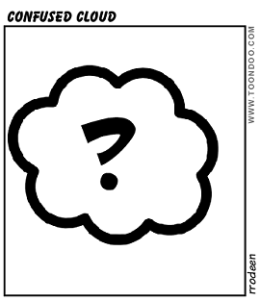Revisit the purpose & learning outcomes for this course in the course syllabus. List the course objectives in your course and reflect on the degree to which you were able to meet them. Address your progress towards those outcomes giving any examples of your experience.
1. Analyze, learn & use current technology related to learning & education: I thought that maybe I had a good grasp on technology and how to use it efficiently. Well, it turns out I was sorely mistaken. I had never used Google for anything other than a search engine before this class, and I can’t believe how much I have been missing. Google Docs, Google Drive in general, and Google Sites are amazing! The ability to use Google Docs for collaboration is so valuable. Students and teachers and even students with teachers can help edit and create work online. Before, I would have been stuck with good old fashioned pen and paper, which means face to face collaboration.
2. Resourcefully, consistently & actively participate in various individual, small group and large group assignments: So much of a teacher’s work can be done in isolation. It was nice learning new ways to collaborate via Skype, or the weekly meetings for this class. It gives me ideas moving forward on ways for students to work together in groups.
3. Practice thoughtful, cognitive reflection about the application and impact of technology in education and culture using a course blog, course textbook topics and project development: Being in a classroom with a Smartboard and reading other blogs, I’ve really been exposed to how technology can be applied in such a way that can help students access the content. Though I may not be a big fan of blogging personally, I have changed my mind about the impact of technology on education. Screencasts can be used to provide extra information before or after a lesson, or even for students who are absent, or may need more visual reminders. I have used the blogs to gain new insights on technology, for everyone has such wonderful ideas.
4. Develop several projects integrating a variety of new technologies. Selectively narrow to the tools you found the most valuable to be integrated in the culminating project based learning activity; a WebQuest:
5. Research, design, construct, and demonstrate a personally and professionally meaningful educational WebQuest: Four and Five need to be bunched together. I think learning about Google Sites has really opened my eyes. I can make websites to interest and excite my students. For some reason, kids don’t mind reading information on a webpage, and it rarely occurs to them that reading on the internet is still READING! Well, if a little trickery on my part results in more reading of the content, then who am I to complain? I also love the idea of Wikis and student created wikis. Wikis are a wonderful way to encourage students to work together and publish their findings. Before this class, I didn’t even know lay persons could create a wiki, let alone there were several sites besides Wikipedia!
Man, when I think of how much I have learned in this class it is mind boggling. To think that I have all these tools now, and I’m sure countless more will be coming! And all to help the content become more accessible to students. Accessible, and enjoyable. It has been a pleasure. This is me, signing off!




